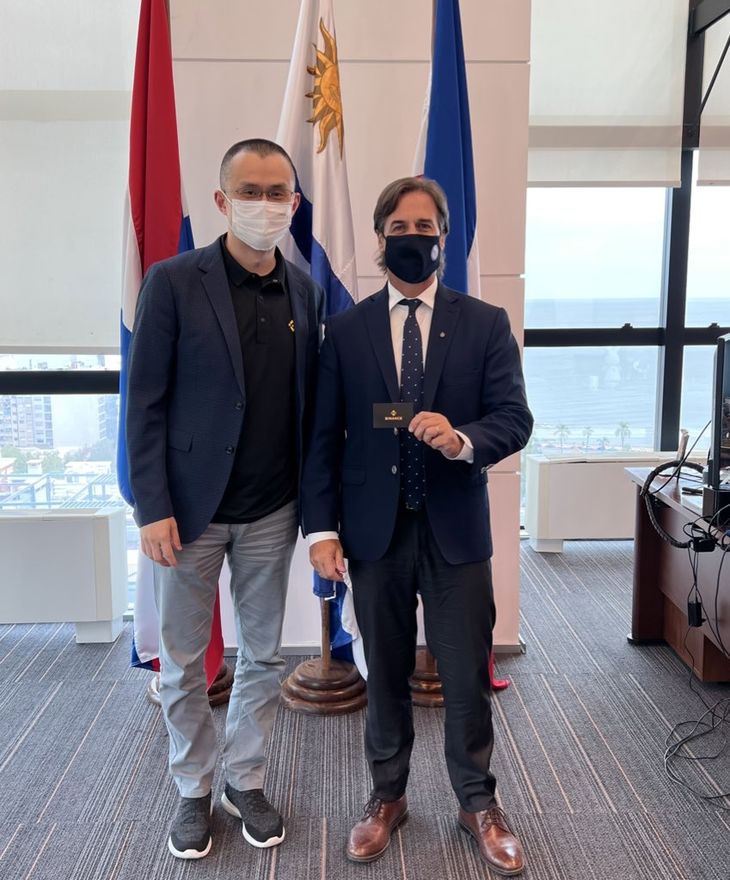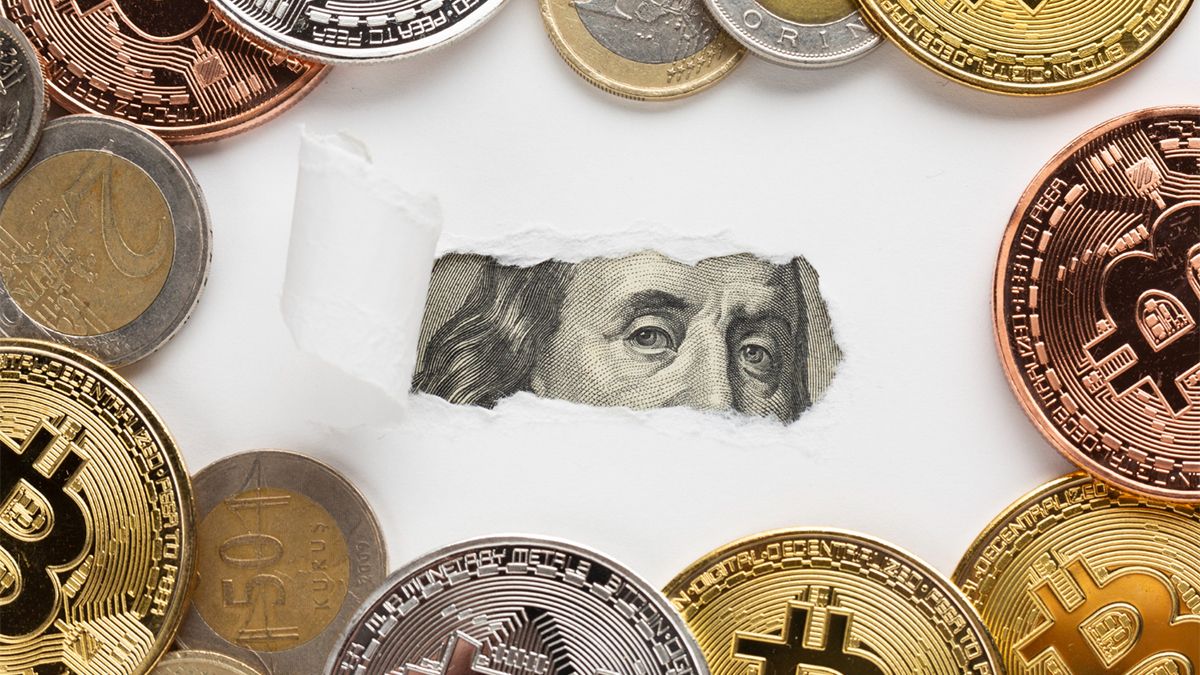According to Babic, before the SEC’s decision “what was argued was that Bitcoin was outside the system”, beyond GBTC itself. “Now during market hours you have different ETFs that replicate the price of BTC,” he detailed in reference to such as ARKB, BITB, BTCW, FBTC and the IBIT. “At the moment it is only with BTC, although there is speculation Ethereum (ETH)which is the second most important crypto,” he added.
Babic recalls that, although by investing in an ETF you are not purchasing the cryptocurrency itself, investment funds were able to incorporate cryptocurrencies into their portfolios using this instrument. “The idea of Bitcoin is that it is not regulated,” he noted.
In that sense, he explains that these ETFs can be bought and sold at any time, without the need for an electronic wallet. “The only thing the customer has to pay is a cost as if they were purchasing the SPY ETF“, of the S&P 500he commented.
The regulatory framework for crypto assets in Uruguay
Despite the BCU bill for the regulation of digital assets that obtained half a sanction from Deputies at the end of 2022 and is under observation behind closed doors of the Legislative Palace, the regulatory framework for cryptoassets in the Uruguay It remains a nebula.
He lawyer Juan Echeverríafrom the firm Echeverría y Asociados, pointed out through an article in November last year that, according to the bill, “any entity that works with crypto assets in Uruguay “must adhere to regulations focused on preventing money laundering and terrorist financing, regardless of whether they are part of the national financial system.”
In turn, it appears that the BCU differentiated cryptocurrencies into four different categories: “currencies of value”, “utility”, “stablecoins” and “others”. Something that the lawyer understands as “a crucial step towards a more transparent regulatory environment” around the issue.
Bitcoin Dollar Cryptocurrencies.jpg
Refering to inspectionEcheverría points out that “although the person who sells the crypto can duly prove that the money came from its sale, the ideal would be to request a sworn statement before a notary, which contains the corresponding operation duly detailed, where the historical trace is demonstrated, so that they do not come from a fraudulent action.”
From the bill, it is also clear that those cryptographic tokens that “do not verify the condition of being a digital representation of value or contractual rights, such as tokens that represent academic certifications, credentials of any kind, are excluded from the definition of virtual assets. type or certifications of identity attributes, among others”.
“Uruguay “is directed towards a structured regulation of cryptocurrencies, focusing on classifying the different types of digital currencies, implementing measures against money laundering and terrorist financing, and protecting investors,” adds the lawyer.
The eagerness of Uruguayans for crypto and the brand new ETFs
After the approval of the SEC was a fact, the media “noise” led some investors to set their eyes on the new spot ETFs. “We had a few customers who bought at first,” says Babic.
“There are two schools, there are those who are half skeptical of BTC and those who believe that many are already in real crypto, not in ETFs,” he indicated. For those who are considering trying these new options, Balanz recommends participating with a small percentage due to its high volatility.
“We don’t know if it’s going to go one way or the other,” says Babic, who believes that Halving April was the other big event for which BTC garnered renewed momentary interest in 2024. “When all this comes out in the press and networks, new buyers or interested parties appear,” he added.
After the fourth Halving in history, the reward of the miners It fell to 3,125 BTC on April 16, something that suggests that, if the current demand continues, the price would trend upward. “BTC is finite, it has a limit of 21 million (units) and the Halving is a way to keep that figure scarce over time,” he pointed out in this regard.
“Obviously, there are people who trust and move forward, and there is also the one who is buy-the-dip, who when it goes down goes in there, but the Uruguayan is already quite conservative and in the portfolios that I manage they do not tend to there are large crypto percentages,” Babic highlighted.
The landing of exchanges in the country
Those who want to start operating with the cryptocurrencies themselves and not with ETFs, need an exchange. Some as Binance They seem to have landed in the country with a strong presence at the merchandising level.
Fernandoa former user of the leading global exchange, told Ambit what in Montevideo There is a growing number of vehicles that have stickers of the logo of Binance. “That does not assure you that the person who has it is a user or knows what it is,” she warns.
Regarding the platform, Fernando tells us that his experience was good, from managing the interface to spot operations and in the peer-to-peer market (P2P) that you made, as well as with regard to deposits and withdrawals of money.
“Later I used another exchange. I left that world because it was very volatile,” he was honest, although he acknowledged that he would have no problems investing again in the future. However, she does not perceive that the crypto market is a recurring topic of conversation in social gatherings around her.
For his part, Babic believes that in Uruguay “There is a lot of information missing” for cryptocurrencies to have more global acceptance, especially among older people.
Zhao Lacalle Pou.jpg

Changpeng Zhao’s visit to Lacalle Pou
He Binance CEO Changpeng Zhao In the eye of the storm in recent days after he was sentenced to four months in prison following a series of accusations of money laundering and omitting information about transactions suspected of coming from terrorist groups, he visited the President of the Republic, Luis Lacalle Pouin March 2022.
Through his X account (formerly Twitter), Zhao described Lacalle Pou as a “strong, confident and very calm” man, with whom he could discuss “blockchain and economics.”
In those days, Lacalle Pou said in a business forum held in Punta del Este that “we would have to dig a little deeper into who manages the blockchain in a cryptocurrency”, since it seems “very nice as a dream”, but that “when a government embarks on that there has to be regulation.”
“It’s one thing when there begins to be speculation” and “another thing is when you internalize it in a local economy and put it on a blackboard,” he said. “There, the State already assumes a responsibility for the circulation of a currency that each of its creators are unaware of and how the system really works,” he insisted.
Source: Ambito




